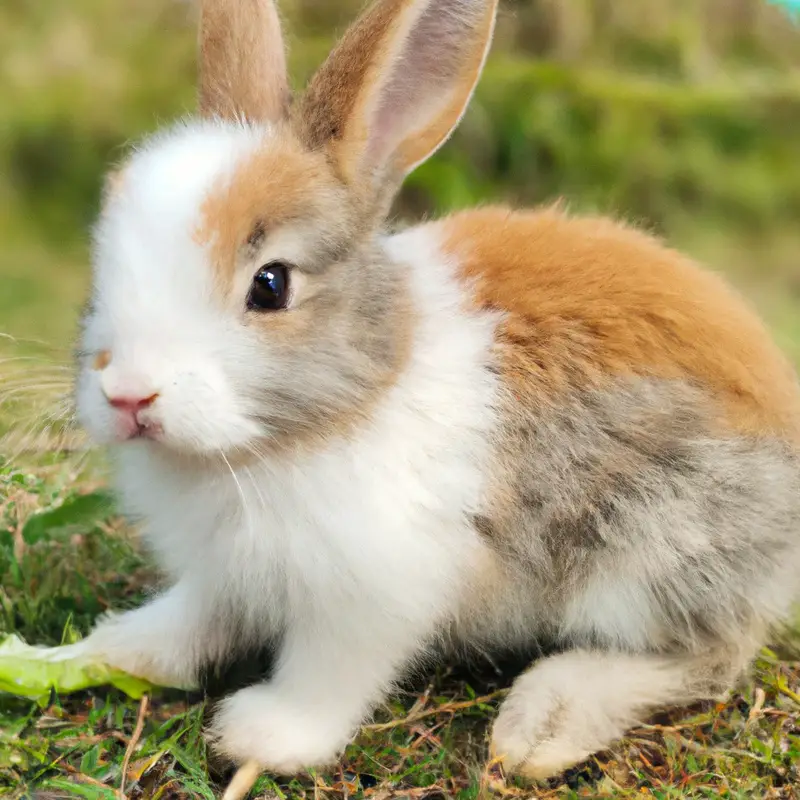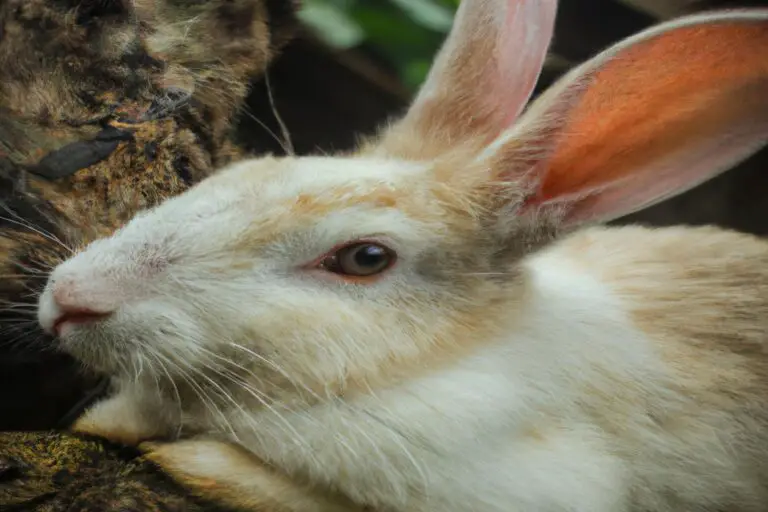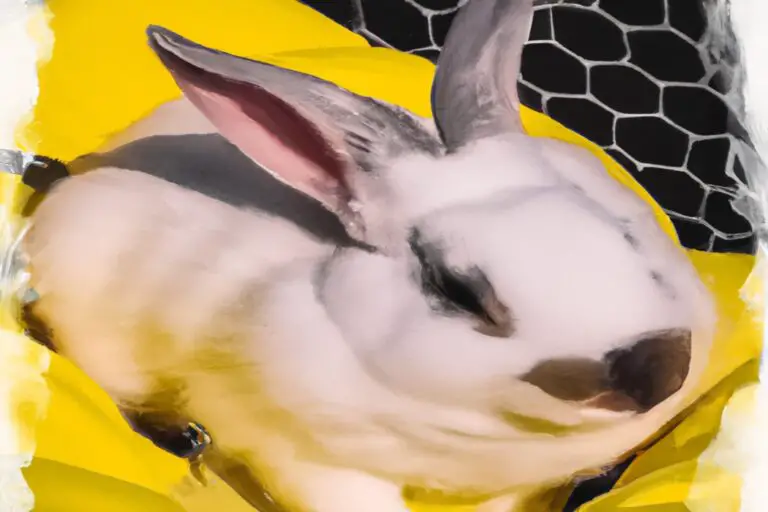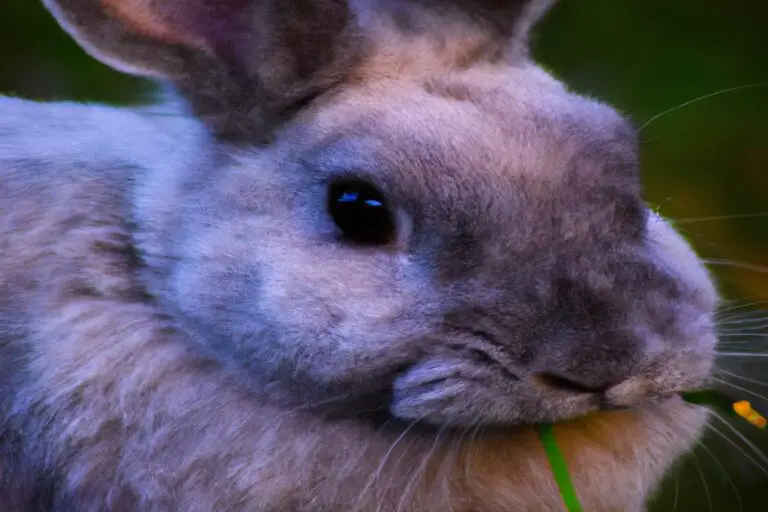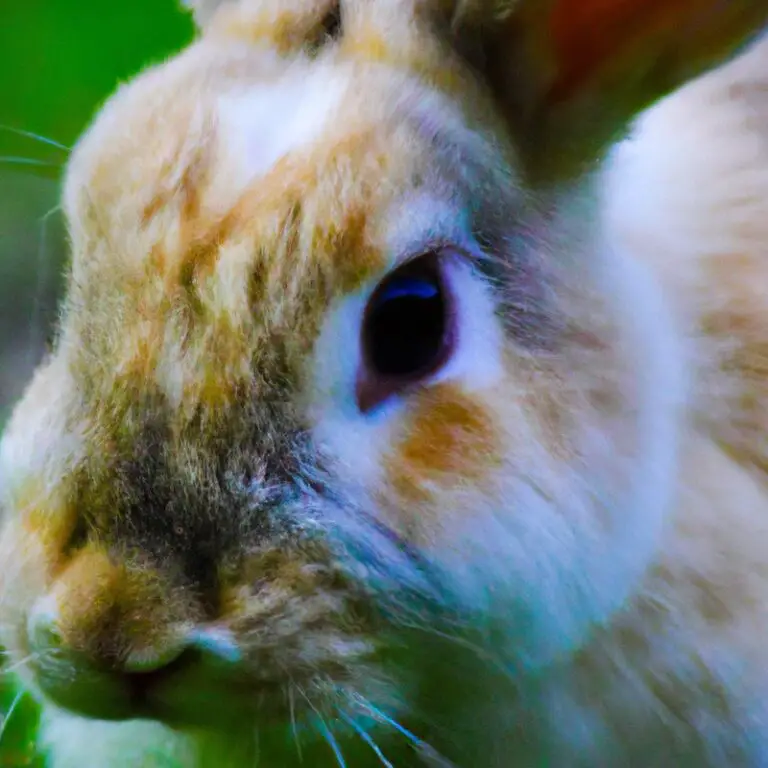Health And Wellness For Rabbits: Common Issues And How To Prevent Them
Key Takeaways:
- Provide a balanced and fiber-rich diet to prevent digestive problems in rabbits.
- Regular exercise and mental stimulation are vital for maintaining the overall health of rabbits.
- Take preventive measures against common rabbit illnesses such as dental issues and obesity.
- Regular check-ups with a veterinarian can help identify and treat early signs of health issues in rabbits.
Are you a proud rabbit parent who wants to ensure the health and happiness of your furry friend?
Well, you’re in the right place! In this blog post, we’re going to explore the common health issues that can affect rabbits and discover the preventive measures you can take to keep them in tip-top shape.
From dental problems and gastrointestinal stasis to respiratory infections and obesity, we’ll cover it all.
Plus, we’ll dive into the world of rabbit behavior and learn how to promote their mental and emotional well-being.
Stay tuned for expert tips, advice, and answers to frequently asked questions.
Your bunny will thank you!
| Common Health Issues | Prevention Tips |
|---|---|
| Overgrown Teeth | Provide unlimited access to hay for proper tooth wear |
| GI Stasis | Feed a high fiber diet and ensure adequate hydration |
| Obesity | Offer a balanced diet and provide regular exercise |
| Dental Malocclusion | Monitor teeth regularly and seek veterinary care if needed |
| Respiratory Infections | Avoid exposure to drafts and maintain a clean living environment |
| Heat Stroke | Provide a cool and well-ventilated space during hot weather |
Common Health Issues in Rabbits
Rabbits can experience a range of common health issues that include dental problems, gastrointestinal stasis, respiratory infections, parasites, and obesity.
Dental Problems
Dental problems are common in rabbits.
One of the most common issues is overgrown teeth, which can lead to pain, difficulty eating, and even abscesses.
Another problem is malocclusion, where the teeth don’t meet properly, causing improper wear and the same issues as overgrown teeth.
Regular dental exams by a veterinarian who specializes in rabbits are important for prevention and early detection.
Feeding a balanced diet and providing appropriate chew toys can also help maintain good dental health.
Gastrointestinal Stasis
Gastrointestinal stasis is a common health issue in rabbits that occurs when their digestive system slows down or stops completely. It can be caused by factors such as a poor diet, lack of exercise, or stress.
Signs of gastrointestinal stasis include decreased appetite, reduced fecal output, and a hunched posture.
To prevent this condition, provide your rabbit with a balanced diet of hay, fresh vegetables, and limited pellets. Encourage regular exercise and ensure a stress-free environment.
If you notice any signs of gastrointestinal stasis, seek veterinary assistance immediately.

Respiratory Infections
Respiratory infections can be a common health issue in rabbits. They can be caused by factors such as poor ventilation, dusty bedding, or exposure to cold drafts.
Symptoms may include sneezing, coughing, nasal discharge, and difficulty breathing.
It is important to seek veterinary care if your rabbit shows signs of respiratory infection. To prevent respiratory infections, make sure your rabbit’s environment is clean and well-ventilated, and provide them with a balanced diet and appropriate bedding.
Regular veterinary check-ups are also important for maintaining your rabbit’s respiratory health.
Parasites
Parasites are common health issues that can affect rabbits.
Some of the most common parasites in rabbits include fleas, ticks, mites, and worms.
These parasites can cause discomfort, skin irritation, and even lead to more serious health problems if left untreated.
Regularly checking your rabbit for signs of parasites and promptly seeking veterinary care if any are found is important.
Additionally, implementing preventative measures such as keeping your rabbit’s living area clean and providing regular grooming can help reduce the risk of parasite infestations.
Obesity
Obesity is a common health issue in rabbits that can have serious consequences.
Excess weight puts a strain on their bones and joints, leading to mobility issues and discomfort.
It can also increase the risk of other health problems such as heart disease and diabetes.
To prevent obesity, focus on proper nutrition by providing a balanced diet of hay, fresh vegetables, and limited pellets.
Control portion sizes and avoid overfeeding treats.
Encourage regular exercise by giving your rabbit plenty of space to hop and explore.
Regular veterinary check-ups are crucial to monitor your rabbit’s weight and overall health.

Preventive Measures for Rabbit Health
Taking preventive measures is essential for ensuring the health and well-being of your rabbit.
Balanced Diet and Nutrition
Balanced Diet and Nutrition play a vital role in keeping rabbits healthy and happy.
It is important to provide them with a diet that includes a variety of fresh vegetables, leafy greens, and hay.
Some safe options include lettuce, carrots, broccoli, and parsley.
You should also provide them with a constant supply of fresh water and avoid giving them foods that are high in sugar or unhealthy fats.
Regularly monitoring their weight and consulting with a veterinarian can help ensure they are getting the right nutrients they need.

Regular Exercise and Mental Stimulation
Regular exercise and mental stimulation are essential for the overall well-being of rabbits. Exercise helps to maintain a healthy weight, promote cardiovascular health, and prevent obesity-related issues.
It is important to provide ample opportunities for your rabbit to run, hop, and explore.
Mental stimulation, on the other hand, keeps rabbits engaged and prevents boredom. You can achieve this by offering puzzle toys, hiding treats, and rotating their playthings regularly.
Both exercise and mental stimulation contribute to a happy and healthy rabbit.
Proper Dental Care
Proper dental care is essential to ensure the overall health and well-being of your rabbit. Regularly check your rabbit’s teeth for any signs of overgrowth, malocclusion, or abscesses.
Provide a balanced diet that includes plenty of hay to promote natural wear of the teeth.
Avoid feeding excessive amounts of sugary treats or soft foods that can lead to dental problems. In addition, offer safe chew toys and provide fresh water at all times.
Regular veterinarian check-ups and dental cleanings are also important to maintain your rabbit’s oral health.
Hygiene and Cleanliness
Maintaining proper hygiene and cleanliness for your rabbit is essential for their overall health and well-being.
Here are a few key tips to keep in mind:
- Regularly clean the housing: Clean your rabbit’s cage or hutch on a weekly basis, removing any waste or soiled bedding. This helps prevent the buildup of bacteria and odors.
- Provide fresh drinking water: Ensure that your rabbit always has access to clean, fresh water. Change the water daily to prevent contamination and maintain hydration.
- Keep the litter box clean: If your rabbit is litter box trained, clean the litter box regularly to prevent the spread of bacteria. This also helps maintain a hygienic living environment.
- Groom your rabbit regularly: Regular grooming helps keep your rabbit’s coat clean and reduces the risk of matting. Brush them gently to remove loose fur and prevent hairballs.
- Monitor your rabbit’s eating habits: Be aware of any changes in your rabbit’s appetite or eating patterns. Ensure that their food is fresh and uncontaminated to prevent digestive issues.
- Practice good hand hygiene: Remember to wash your hands thoroughly before and after interacting with your rabbit. This helps prevent the transmission of germs or diseases.
Regular Veterinary Check-ups
Regular veterinary check-ups are essential for maintaining your rabbit’s health and well-being.
These check-ups allow the veterinarian to monitor your rabbit’s overall condition, catch any potential health issues early on, and provide necessary vaccinations and preventive treatments.
During these visits, the vet will conduct a thorough examination, including checking for signs of dental problems, conducting laboratory tests if necessary, and offering advice on proper nutrition and habitat.
By scheduling regular veterinary check-ups, you can ensure your rabbit stays happy and healthy for years to come.
Common Behavioral Issues in Rabbits
Rabbits can exhibit aggression, destructive chewing, issues with litter box training, difficulties with bonding and socialization, and can experience boredom and stress.
Aggression
Aggression is a common behavioral issue in rabbits. It can manifest in various ways, such as growling, biting, scratching, or lunging at humans or other animals.
Aggression in rabbits is usually rooted in fear, territorial instincts, or hormonal imbalances.
To address aggression, it’s important to provide a safe and enriched environment for your rabbit, spay/neuter them, and socialize them properly. Seek guidance from a veterinarian or a rabbit behavior specialist for tailored advice on managing and preventing aggression in your rabbit.
Destructive Chewing
Destructive chewing is a common issue in rabbits. They love to chew on things, and sometimes this includes furniture, electrical cords, and even walls.
It’s important to address this behavior to prevent damage and keep your bunny safe.
Provide plenty of appropriate chew toys, such as wooden blocks or hay balls, to redirect their chewing. You can also bunny-proof your home by covering cords and blocking off areas where they can reach furniture.
Supervision and consistent training are key to help break this habit.
Litter Box Training
Litter box training is essential for rabbits to maintain a clean living space. Start by providing a litter box filled with rabbit-safe litter.
Place it in a convenient location.
Rabbits are naturally inclined to use one specific area for their waste, so observe their behavior and move the litter box accordingly. Clean the litter box regularly, and reinforce positive behavior with treats or praise.
Be patient and consistent, as it may take some time for your rabbit to fully adapt to using the litter box.
Bonding and Socialization
Bonding and socialization are essential for rabbits’ well-being.
It is important to introduce rabbits gradually, allowing them to get to know each other’s scents and behaviors before moving on to face-to-face interactions.
Provide a neutral territory for their first meetings, supervise these interactions, and separate them if any aggression occurs.
Regular bonding sessions can help rabbits develop a strong bond and prevent potential behavioral issues.
Socialization with humans is also crucial, so spend quality time with your rabbits through gentle handling, petting, and positive reinforcement.
Boredom and Stress
Boredom and stress can be common issues that rabbits face in their daily lives.
Both of these can have negative effects on a rabbit’s health and well-being.
Boredom can lead to destructive behaviors, such as chewing on furniture or digging inappropriately.
Stress, on the other hand, can weaken a rabbit’s immune system and make them more susceptible to illness.
To prevent boredom and stress, provide your rabbit with plenty of toys and activities to keep them mentally stimulated.
Additionally, make sure your rabbit has a safe and comfortable environment where they can retreat and relax when needed.
Promoting Mental and Emotional Well-being in Rabbits
To ensure the mental and emotional well-being of your rabbit, focus on enriching their environment, providing toys and playtime, bonding with them, creating a safe and stress-free space, and addressing any behavioral problems that may arise.
Enriching the Environment
Enriching the environment is essential for the well-being of your rabbit. Provide plenty of space for them to hop around, as well as hiding spots like tunnels or boxes.
Place toys and chew items in their enclosure to keep them entertained and prevent boredom.
Variety is key, so rotate toys and rearrange their living area to keep things interesting. Don’t forget to include safe plants and grass for them to nibble on.
Regularly interacting with your rabbit and providing mental stimulation will help ensure a happy and healthy rabbit.
Providing Toys and Playtime
Providing toys and playtime is essential for the mental and physical well-being of rabbits.
By offering a variety of toys, such as chew toys and puzzle toys, you can keep your rabbit mentally stimulated and prevent boredom.
Playtime allows rabbits to exercise and explore their environment, reducing the risk of obesity and promoting overall health.
Make sure to supervise playtime and ensure a safe and rabbit-proofed area.
Regularly rotate toys to keep things interesting for your furry friend.
Bonding with Your Rabbit
Bonding with your rabbit is an important part of building a strong relationship. Spend time sitting with your rabbit, allowing them to come to you.
Offer treats and speak softly to reinforce positive associations.
Gently stroke your rabbit’s head and back, avoiding their sensitive areas. Provide a safe and quiet environment, and be patient as trust is established.
Regular interaction and engaging in activities together will help strengthen your bond over time.
Creating a Safe and Stress-free Space
Creating a safe and stress-free space for your rabbit is essential for their overall well-being. Here are a few simple steps you can take:
- Provide a quiet environment: Rabbits are sensitive to loud noises and sudden movements. Find a calm and peaceful spot in your home where they can feel secure.
- Arrange their living area thoughtfully: Give your rabbit plenty of space to move around and explore. Ensure their cage or enclosure is clean, well-ventilated, and escape-proof.
- Offer hiding spots: Rabbits appreciate having places to hide when they feel scared or stressed. Provide them with tunnels, boxes, or hideaways where they can retreat to when they need some alone time.
- Avoid overcrowding: If you have multiple rabbits, make sure they have enough space to avoid conflicts and establish their territories. Overcrowding can lead to stress and aggression.
- Provide mental stimulation: Engage your rabbit’s mind with toys, puzzles, and foraging activities. This will keep them physically and mentally active, reducing boredom and stress.
Identifying and Addressing Behavioral Problems
Identifying and addressing behavioral problems in rabbits is important for their overall well-being.
Some common signs of behavioral issues include excessive chewing, aggression, urine spraying, and hiding.
To address these problems, create a stimulating environment with toys and hiding spots, provide regular exercise, and consider spaying or neutering your rabbit.
Consistency and positive reinforcement are key when training your rabbit to correct unwanted behaviors.
If the problem persists, consult with a veterinarian specializing in rabbit behavior for further guidance.
Frequently Asked Questions (FAQs)
What should a rabbit’s diet consist of?
A rabbit’s diet should consist mainly of hay, fresh vegetables, and a small amount of pellets.
Hay is essential for digestion and dental health.
Offer a variety of leafy greens like lettuce, spinach, and kale.
Limit the intake of fruits due to their high sugar content.
Pellets should be a small portion of their diet and should be specifically formulated for rabbits.
Make sure they always have access to fresh water.
Avoid feeding them foods that are toxic to rabbits, such as chocolate or onions.
How can I prevent dental problems in rabbits?
To prevent dental problems in rabbits, it is important to provide them with a proper diet and dental care. Make sure they have access to unlimited hay, which helps wear down their teeth naturally.
Avoid feeding them too many sugary or starchy treats, as these can lead to tooth decay.
Regularly check your rabbit’s teeth for signs of overgrowth or abnormalities, and schedule regular veterinary check-ups to catch any dental issues early. Finally, provide your rabbit with chewing toys or objects to keep their teeth healthy and exercised.
How often should I take my rabbit for veterinary check-ups?
Taking your rabbit for regular veterinary check-ups is essential for their health and well-being.
I recommend scheduling an annual visit with your veterinarian to ensure your rabbit is in good health.
However, rabbits can be prone to certain health issues, so it’s also important to keep an eye on any changes in their behavior or appearance and seek veterinary care if needed.
Regular check-ups can help identify any potential problems early on and prevent them from becoming more serious.
Your veterinarian can provide guidance on the specific frequency of check-ups based on your rabbit’s individual needs.
What are some signs of stress in rabbits?
Signs of stress in rabbits include decreased appetite, weight loss, excessive grooming, aggression, hiding, and increased heart rate. Other indicators may include diarrhea, changes in behavior, and sleep disturbances.
Paying attention to these signs can help you identify and address stress in your rabbit, providing a happier and healthier environment.
Regularly monitoring your rabbit’s behavior and providing a calm and consistent living space can help prevent stress.
How can I bond with my rabbit effectively?
To bond effectively with your rabbit, spend quality time together.
- Create a calm environment: Rabbits thrive in peaceful surroundings, so provide a quiet, safe space.
- Offer treats and toys: Use positive reinforcement to reward good behavior and engage your rabbit in playtime.
- Grooming sessions: Brushing your rabbit not only helps with their fur, but also strengthens the bond between you both.
- Socialize daily: Rabbits are social animals, so make sure to interact with them regularly to build trust and companionship.
Final Verdict
Ensuring the health and wellness of rabbits requires proactive measures and attentive care. Dental problems, gastrointestinal stasis, respiratory infections, parasites, and obesity are common health issues that can be prevented through a balanced diet, regular exercise, proper dental care, hygiene, and regular veterinary check-ups.
Similarly, behavioral issues like aggression, destructive chewing, litter box training, bonding, and boredom can be addressed by enriching the environment, providing toys and playtime, bonding with the rabbits, creating a safe space, and addressing behavioral problems promptly.
By implementing these preventive measures and promoting mental and emotional well-being, rabbit owners can foster a happier and healthier life for their beloved pets.

